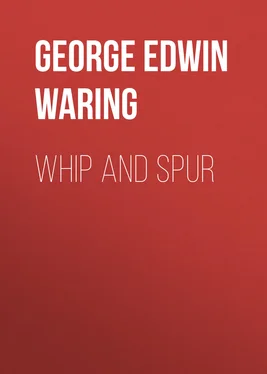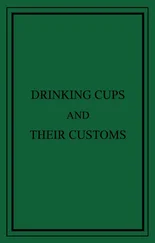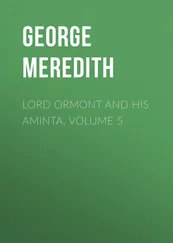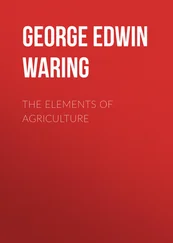George Edwin Waring - Whip and Spur
Здесь есть возможность читать онлайн «George Edwin Waring - Whip and Spur» — ознакомительный отрывок электронной книги совершенно бесплатно, а после прочтения отрывка купить полную версию. В некоторых случаях можно слушать аудио, скачать через торрент в формате fb2 и присутствует краткое содержание. Жанр: Биографии и Мемуары, История, foreign_edu, foreign_antique, foreign_prose, на английском языке. Описание произведения, (предисловие) а так же отзывы посетителей доступны на портале библиотеки ЛибКат.
- Название:Whip and Spur
- Автор:
- Жанр:
- Год:неизвестен
- ISBN:нет данных
- Рейтинг книги:4 / 5. Голосов: 1
-
Избранное:Добавить в избранное
- Отзывы:
-
Ваша оценка:
- 80
- 1
- 2
- 3
- 4
- 5
Whip and Spur: краткое содержание, описание и аннотация
Предлагаем к чтению аннотацию, описание, краткое содержание или предисловие (зависит от того, что написал сам автор книги «Whip and Spur»). Если вы не нашли необходимую информацию о книге — напишите в комментариях, мы постараемся отыскать её.
Whip and Spur — читать онлайн ознакомительный отрывок
Ниже представлен текст книги, разбитый по страницам. Система сохранения места последней прочитанной страницы, позволяет с удобством читать онлайн бесплатно книгу «Whip and Spur», без необходимости каждый раз заново искать на чём Вы остановились. Поставьте закладку, и сможете в любой момент перейти на страницу, на которой закончили чтение.
Интервал:
Закладка:
That night, an infernal brute of a troop horse that had already killed Ludlow’s charger, led by some fiendish spirit, broke into Vixen’s enclosure, and with one kick laid open her hock joint.
In vain they told me that she was incurable. I could not let her die now, when she was just restored to me; and I forced from De Grandèle the confession that she might be slung up and so bound that the wound would heal, although the joint must be stiff. She could never carry me again, but she could be my pet; and I would send her home, and make her happy for many a long year yet. We moved camp two miles, to the edge of the town, and she followed, painfully and slowly, the injured limb dragging behind her; I could not give her up. She was picketed near my tent, and for some days grew no worse.
Finally, one lovely Sunday morning, I found her sitting on her haunches like a dog, patient and gentle, and wondering at her pain. She remained in this position all day, refusing food. I stroked her velvet crest, and coaxed her with sugar. She rubbed her nose against my arm, and was evidently thankful for my caresses, but she showed no disposition to rise. The adjutant led me into my tent as he would have led me from the bedside of a dying friend. I turned to look back at poor Vixen, and she gave me a little neigh of farewell.
They told me then, and they told it very tenderly, that there was no possibility that she could get well in camp, and that they wanted me to give her over to them. The adjutant sat by me, and talked of the old days when I had had her at home, and when he had known her well. We brought back all of her pleasant ways, and agreed that her trouble ought to be ended.
As we talked, a single shot was fired, and all was over. The setting sun was shining through the bare November branches, and lay warm in my open tent-front. The band, which had been brought out for the only funeral ceremony, breathed softly Kreutzer’s touching “Die Kapelle,” and the sun went down on one of the very sad days of my life.
The next morning I carved deeply in the bark of a great oak-tree, at the side of the Pacific Railroad, beneath which they had buried my lovely mare, a simple VIX; and some day I shall go to scrape the moss from the inscription.
RUBY
I was a colonel commanding a regiment of German cavalrymen in South Missouri, and must have a horse; it was desirable to be conspicuously well mounted, and so it must be a showy horse; being a heavy weight and a rough rider, it must be a good horse. With less rank, I might have been compelled to take a very ordinary mount and be content: my vanity would not have availed me, and my rough riding must have ceased.
But I was chief ruler of the little world that lay encamped on the beautiful banks of the Roubie d’Eaux; and probably life was easier to all under me when I was satisfied and happy. I am not conscious of having been mean and crabbed, or of favoring those who favored me to the disadvantage of those who did not. I cannot recall an instance of taking a bribe, even in the form of a pleasant smile. It was probably easier, in the long run, to be fair than to be unfair, and therefore the laziest private ever ordered on extra duty could not lay his hand on his heart and say he thinks it was done because he was not diligent in foraging for turkeys and hens for my private mess. I had very early in life been impressed with the consciousness that the way of the transgressor is not easy; and as I wanted my way to be easy, I fell into the way of not transgressing.
This may not have been a very worthy motive to actuate the conduct of a military commander; but perhaps it was as good as the average in our Department of the Southwest, where, if the truth must be told, virtue did not have it all its own way,—we were different from troops farther east; and although it made me sometimes wince to have my conduct ascribed to a noble uprightness of purpose, and showed that it would really have been more honest not to have been quite so good, yet one should perhaps be satisfied with having carried out one’s intention of treating every man in the command, officer or soldier, as nearly as he should be treated as the interests of the public service, the good of the individual himself, and one’s own personal convenience would allow.
Therefore, I say, I am not conscious of having favored those who favored me, to the disadvantage of those who did not; neither do I think that (at this stage of our acquaintance) the Grafs and Barons and simple Mister Vons, of whom the command was so largely composed, entertained the hope of personal benefit when they laid their kindnesses at my accustomed feet, and tried to smooth my way of life.
The headquarters' mess was generally well supplied,—and no questions asked. My relations with most of the command were kindly, and it apparently came to be understood—for German cavalrymen are not without intelligence—that the happiness of the individual members of the regiment depended rather on the happiness of its colonel than on any direct bids for his favor. Be this as it may, I am not conscious of having received such direct appeals, and I am entirely conscious of the fullest measure of happiness that my circumstances would allow; not an ecstasy of delight,—far from that,—but a comfortable sense of such well-fed, well-paid, well-encamped, and pleasantly occupied virtue as had left nothing undone that my subordinates could be made to do, and did nothing that my conditions rendered difficult. My own good-humor was equalled by that of the regiment at large, and the beetling sides of the Ozark valleys nowhere sheltered a happier campful of jolly good fellows than the Vierte Missouri Cavalry.
We lay on the marvellous Roubie d’Eaux, at its source; no such babbling brook as trickles from the hillside springs of New England, but a roaring torrent, breaking at once from a fathomless vent in the mountain. The processes of formation with these South Missouri rivers are all hidden from sight, but, far away in the topmost caves of the Ozark hills, the little streamlets trickle, and unite for a larger and ever larger flow, gorging at last the huge caverns of the limestone rock and bursting upon the world a full-grown river. Within our camp this wonderful spring broke forth, and close at hand was a large grist-mill that it drove. We were a self-sustaining community,—in this, that we foraged our own corn and ground our own meal. With similar industry we provided ourselves with fish, flesh, and fowl.
The trees were bare with the November frosts, but the Indian summer had come, and, day after day, it bathed every twig and spray with its amber breath, warming all nature to a second life, and floating the remoter hills far away into a hazy dreamland.
But personally, notwithstanding all this, I was not content: I was practically a dismounted cavalryman. Indeed, it would even have been a pity to see a colonel of infantry riding such brutes as fell to my lot, for good weight-carriers were rare in that section. I had paid a very high price for a young thoroughbred stallion (afterwards, happily, sold for a large advance), only to find him a year too young for his work, and the regiment had been scoured in vain for an available mount. I would have gone any reasonable length, even in injustice, to secure such an animal as was needed. It was not easy to make up one’s mind to order a soldier to give up a horse he was fond of, and some soldier had an especial fondness for all but the worthless brutes. My reluctance to do this was perhaps not lessened by the fact that it was forbidden for officers to ride United States horses. It finally became evident that the chances were very small of ever finding a suitable animal, and I even went out, on one shooting excursion, mounted on a mule.
Up to this time the regiment had been all that could be asked, but now it seemed to contain a thousand ill-tempered, sore-headed men. The whole camp was awry. Some of the officers intimated that this was all the fault of the adjutant; that the orders from headquarters had lately been unusually harsh. This officer, when remonstrated with, insisted that he had only transmitted the exact orders given him, and I knew that my own action had always been reasonable,—on principle so. Sometimes one almost wished himself back in civil life, away from such constant annoyances.
Читать дальшеИнтервал:
Закладка:
Похожие книги на «Whip and Spur»
Представляем Вашему вниманию похожие книги на «Whip and Spur» списком для выбора. Мы отобрали схожую по названию и смыслу литературу в надежде предоставить читателям больше вариантов отыскать новые, интересные, ещё непрочитанные произведения.
Обсуждение, отзывы о книге «Whip and Spur» и просто собственные мнения читателей. Оставьте ваши комментарии, напишите, что Вы думаете о произведении, его смысле или главных героях. Укажите что конкретно понравилось, а что нет, и почему Вы так считаете.












